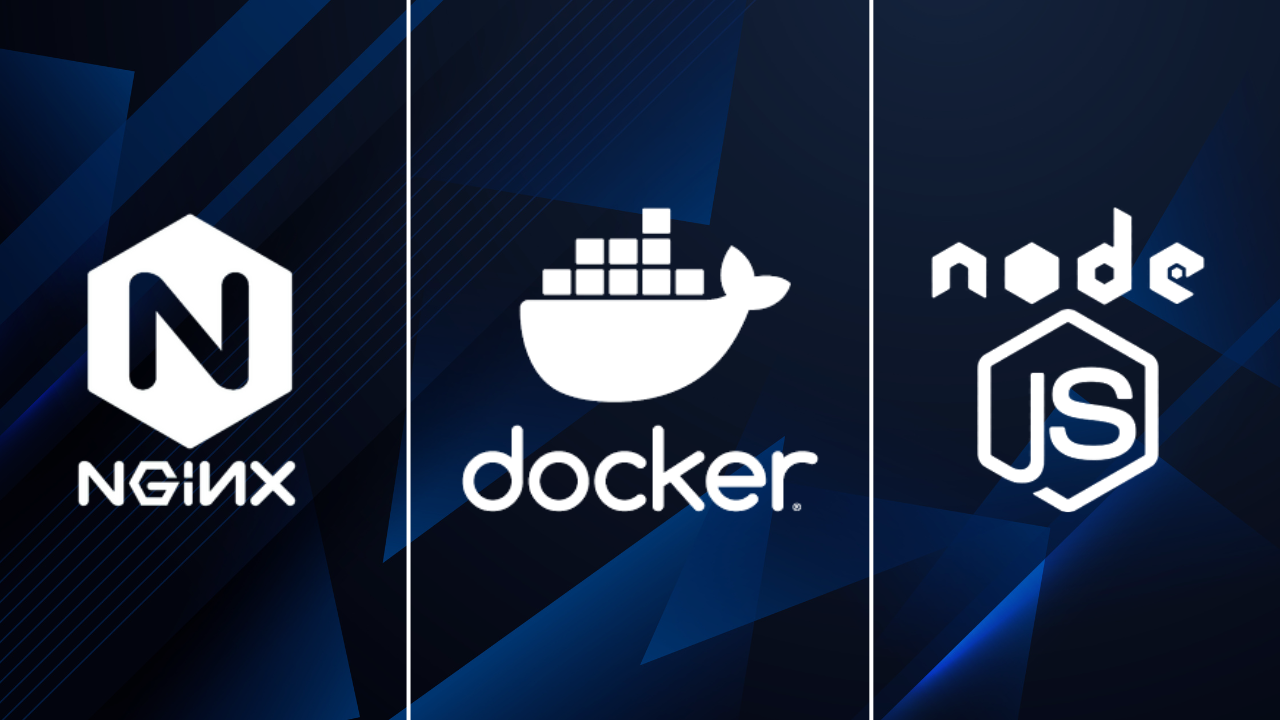Every developer dreams of a smooth, reliable deployment process that takes their application from local development to a production-ready environment. Today, I'll walk you through a game-changing approach to deploying Node.js applications using Docker and Nginx.
Why use Docker and Nginx
Imagine building an application that runs perfectly on your machine, but falls apart when deployed. Frustrating, right? Docker and Nginx solve this exact problem. Docker creates consistent environments, while Nginx acts as a powerful front-line server that handles traffic like a pro.
Getting started
Before diving in, make sure you have a few essentials on your development machine. You'll need Docker installed to create consistent containerized environments, Node.js and npm for building your application, and a code editor that feels like home. Most importantly, bring along your excitement for turning code into a live, breathing application.
Creating the Node.js application
First, let's create a simple Express.js application that will be our backend service.
Create a new project directory and initialize it:
mkdir nodejs-docker-demo
cd nodejs-docker-demo
npm init -y
npm install express
Now, let's craft our application in app.js:
const express = require('express');
const app = express();
const port = process.env.PORT || 3000;
app.get('/', (req, res) => {
res.send('Welcome to my awesome app!');
});
app.get('/api/data', (req, res) => {
res.json({
message: 'Delivering data with style',
timestamp: new Date().toISOString()
});
});
// Health check endpoint
app.get('/health', (req, res) => {
res.status(200).json({
status: 'healthy',
uptime: process.uptime(),
timestamp: new Date().toISOString()
});
});
app.listen(port, () => {
console.log(`Application running on port ${port}`);
});
Dockerizing the application
Creating a Dockerfile is like giving your application a universal passport. It ensures that your app can run anywhere, anytime, without worrying about environment differences:
FROM node:20
WORKDIR /app
COPY package*.json ./
RUN npm ci --only=production
COPY . .
EXPOSE 3000
CMD ["node", "app.js"]
Create a .dockerignore file to optimize your Docker build:
node_modules
npm-debug.log
Dockerfile
.dockerignore
.git
.gitignore
README.md
Configuring Nginx
Our nginx.conf will handle routing and optimization, acting as a smart traffic director for your application:
events {
worker_connections 1024;
}
http {
upstream nodejs_app {
server node-app:3000;
}
server {
listen 80;
server_name localhost;
location / {
proxy_pass http://nodejs_app;
proxy_set_header Host $host;
proxy_set_header X-Real-IP $remote_addr;
}
}
}
Docker compose setup
Docker Compose orchestrates our containers, bringing everything together with minimal configuration:
version: '3.8'
services:
node-app:
build: .
environment:
- NODE_ENV=production
restart: always
nginx:
image: nginx:latest
ports:
- "80:80"
volumes:
- ./nginx.conf:/etc/nginx/nginx.conf:ro
depends_on:
- node-app
restart: always
Create a .env file for environment-specific configurations:
NODE_ENV=production
PORT=3000
Deployment command
Deploying is as simple as running a single command:
docker-compose up --build
Production considerations
Securing your application goes beyond just deploying code. It's about creating a robust, safe environment that protects both your application and its users. HTTPS is no longer optional – it's essential for encrypting data in transit and building user trust.
Implementing strong authentication mechanisms helps prevent unauthorized access, ensuring that only legitimate users can interact with your application. Keeping dependencies updated is more than a best practice – it's a critical security measure. Regularly updating your packages helps protect against known vulnerabilities and ensures your application benefits from the latest performance improvements and bug fixes.
Comprehensive monitoring provides visibility into your application's health, helping you proactively identify and resolve potential issues before they impact users. This approach transforms your deployment from a simple code transfer to a strategically managed, secure service.
Scaling your application
As your application grows, you'll need more than just a basic deployment strategy. Process managers like PM2 can help manage your Node.js application's lifecycle, ensuring it remains stable and responsive. For more complex architectures, technologies like Docker Swarm or Kubernetes become invaluable, allowing you to distribute your application across multiple servers and handle increased traffic with ease.
Logging and monitoring aren't just nice-to-have features – they're essential tools that provide insights into your application's performance and help you make data-driven decisions about improvements and optimizations.
Conclusion
You've just transformed a local application into a production-ready system. Docker and Nginx aren't just tools – they're your deployment superpowers. They bridge the gap between development and production, ensuring your code runs consistently and efficiently. The journey of deployment is ongoing. Technology evolves, and so should your approach. Keep experimenting, keep learning, and most importantly, keep building amazing things!



